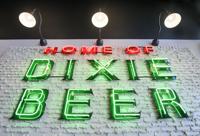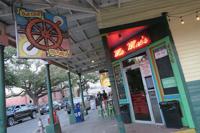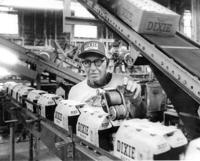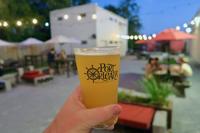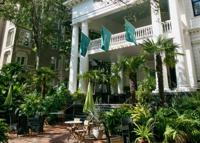from NOLA.com
Behind Dixie Beer’s new name Faubourg, a sense of place and change
Ian McNulty: Behind Dixie Beer’s new name Faubourg, a sense of place and change
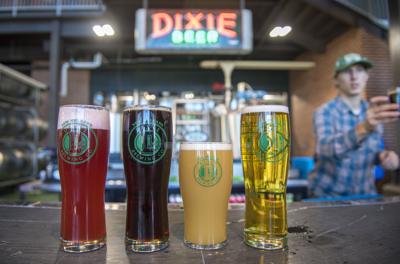
STAFF PHOTO BY CHRIS GRANGER
Faubourg, the new name for Dixie Beer, is a term that speaks to place and also expansion, a meaningful choice for a New Orleans company aiming to reclaim the role it once held in its hometown and also grow beyond it.
The news that Dixie is changing its name to Faubourg Brewing Co. drew both swift praise and derision, echoing the divided response back in June when the local company first announced plans to rebrand itself.
This time though, with official word of the new name, some also dusted off their French to decode it.
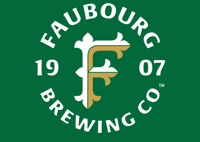
Contributed image from Faubourg Brewing Co.
In common local usage, faubourg means neighborhood, as the beer maker explained in its own press release. But isn’t it also a French word for suburb, the first definition a Google search furnishes?
Well, the linguistic crucible of Louisiana is rarely as straightforward as your first page of search results.
Richard Campanella, a Tulane University geographer and expert on place-based histories of New Orleans, said faubourg is a French term meaning “inner-city suburb.” It remains in use around Paris and other French cities; locally, it’s tied to New Orleans’ French colonial past and patterns of development.
Bourg means town and, in this case, “fau” denotes outer, Campanella said, referring to areas built up just outside an original settlement.
“It was the standard term meaning subdivision, built in a manner adjacent to the growing metropolis,” Campanella said.
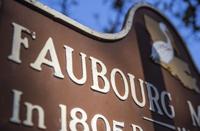
STAFF PHOTO BY SOPHIA GERMER
The first faubourgs of New Orleans cropped up just past the grid of today’s French Quarter. That includes one created as an investment in the city’s future.
Following the devastating 1788 fire that torched much of the Quarter, the family owners of the Gravier plantation subdivided their land adjacent to the town to help spur recovery with new development (it eventually became the Central Business District). The Spanish controlled New Orleans at the time, so this was originally dubbed Suburbio Santa Maria, Campanella notes. But to residents who still spoke French, it was Faubourg Ste. Marie.
As the city’s growth boomed, new faubourgs kept appearing, even as Louisiana joined the United States.
“The heyday of the faubourg was 1805 to about the 1840s, when just about every subdivision had the word faubourg over it,” Campanella said.
However, with French declining as the local tongue, faubourg fell out of use. Campanella said the term was largely extinct by the mid-20th century until the historic preservation movement helped bring it back, including through the influential book series “New Orleans Architecture.”
“A whole generation of people renovating old houses were reintroduced to their neighborhoods’ pasts through those books and to the idea of a faubourg,” he said.
Revived, and recast
The brewery now called Faubourg has a long history, but the new name is hardly the only change. Since Gayle and (the late) Tom Benson acquired the majority share of Dixie in 2017, the company has been gradually recast for a much more modern footing and broader regional ambitions.
Dixie Beer got its start in 1907, when brewing was a major industry for the city. Eventually, though, as beer brands consolidated into ever-larger companies, Dixie was the last brewery based in New Orleans.
When Hurricane Katrina hit, wrecking its original Mid-City facility, the company had already fallen on hard times. With quality and consistency issues, even those most loyal to the brand were prone to discuss their attachment as a penance.
Under Benson ownership, the brewery’s mission was not just to revive the name but the beer’s standing as a staple New Orleans product.
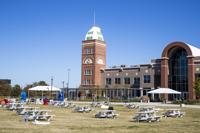
STAFF PHOTO BY SOPHIA GERMER
The new brewery in New Orleans East has plenty of nostalgic touches, including a replica of the Dixie brewery’s original tower (which will soon bear the Faubourg name) and a beer museum (where the Dixie brand history will still be presented).
But the actual beer making facility, and the brewers brought in to run it, align with goals that look to the future. The brewery was designed to make a lot of beer, and to distribute both regionally and far from New Orleans.
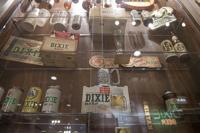

STAFF PHOTO BY CHRIS GRANGER
Its taproom is a family-friendly attraction, with a restaurant, park-like grounds and entertainment. It’s also making many different beers in tune with modern tastes. In the last few months alone, brewers here have produced stouts, sours, fruity IPAs and potent Belgian ales alongside its flagship beers.
Taproom-only releases and rotating selections like these are the standard of craft breweries today. But for Dixie, a brand that had throwback status even before the modern craft beer trend arrived, that approach marked a major change.
Even the familiar lager that was long the Dixie standard is getting a makeover in the months ahead, with a recipe recalibrated back to the original specifications of the brand’s early 1900s roots. Brewery manager Jim Birch states plainly that he wants Faubourg to go toe-to-toe with mega-brands like Budweiser as the local alternative.
Gayle Benson has said dropping the Dixie name is meant to create a brand that can “best represent our culture and community.” Company officials say it’s a recognition that the term’s association with the slavery-era South is at odds with their goal of being a brand that all of New Orleans can call its own.
The city’s understanding of faubourg has changed over time. Perhaps the same will happen with the beer now brewing under that name.

